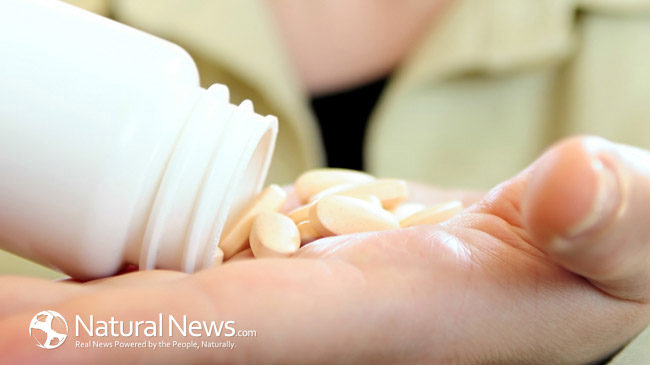The World Health Organization (WHO) reported Wednesday that the world is in now grave danger of entering a post-antibiotic era. “A post-antibiotic era—in which common infections and minor injuries can kill—far from being an apocalyptic fantasy, is instead a very real possibility for the 21st century,” the devastating report issued by the WHO warned. Patients and caregivers are already noticing prescribed antibiotics simply not working anymore. Yet, reoccurring sinus infections or UTIs evading prescribed antibiotics are only the tip of the iceberg.
It is not the first time the WHO declared the state of antibiotic emergency we are approaching. In 2012, the WHO’s director-general Dr. Margaret Chan gave a dire keynote address in Copenhagen, Denmark at a conference about combating antimicrobial resistance. Chan warned:
“A post-antibiotic era means, in effect, an end to modern medicine as we know it. Things as common as strep throat or a child’s scratched knee could once again kill.”
Health officials knew this could happen. Only four years after pharmaceutical companies began mass-producing the antibiotic penicillin in 1943, bacteria began building up resistance to it. Sir Alexander Fleming, the accidental discoverer of the antibiotic penicillin, told the New York Times in 1945, “The greatest possibility of evil in self-medication is the use of too-small doses, so that instead of clearing up infection the microbes are educated to resist penicillin.” Wednesday, the severity of antibiotic resistance was made dauntingly clear in the WHO’s critical report.
Dr. Keiji Fukuda is the assistant director-general for health security at the WHO. Fukuda said in a statement, “Without urgent, coordinated action by many stakeholders, the world is headed for a post-antibiotic era, in which common infections and minor injuries which have been treatable for decades can once again kill.” Fukuda warned that, already, some bacterial infections can not be handled by oral antibiotics and require hospitalization. These infections currently include once highly-treatable bacteria-induced diarrhea and urinary tract infections, the WHO warned. Bacterial resistance to antibiotics in the fluoroquinolone category is already very widespread, making the common e-coli treatment ineffective in more than half of all patients in some areas. In fact, antibiotic resistant bacteria is now a more virulent killer than AIDS, The Guardian reported.
Last year, the CDC had already sternly warned Americans of the imminent dangers of antibiotic resistant bacteria, according to a previous Inquisitr article. In a PBS interview, the CDC’s Dr. Arjun Srinivasan warned:
“For a long time, there have been newspaper stories and covers of magazines that talked about ‘The end of antibiotics, question mark?’ Well, now I would say you can change the title to ‘The end of antibiotics, period.’”
Before reaching for antibacterial soap in a panic from the WHO’s warning… There’s even more bad news in the fight against bacteria. Tricolsan, the antibacterial chemical added to soaps used in nearly all public restrooms and many other products including toothpastes, was just found to encourage nasal colonization of staph. According to ScienceNews, “Microbiologist Blaise Boles, of the University of Michigan in Ann Arbor, and colleagues swabbed the noses of 90 adults and found that having triclosan-containing snot could double a person’s likelihood of carrying staph. The microbes may have adapted to triclosan, allowing them to remain steadfast in the nose.”
Hand sanitizer will also provide little help. The American Journal of Infectious Control published a study in 2008 that demonstrated that while hand sanitizer may kill 99.99% of germs, it’s part of why we are losing the antibacterial war. Alcohol based products, the authors asserted, increase biofilm production and the pathogen potential of staph.
It seems that using antibiotics for an infection also increases an individual’s chances of developing a subsequent infection later. An American Academy of Pediatrics’ news brief stated, “Canadian researchers reported in Archives of Pediatrics & Adolescent Medicine that the risk of harboring methicillin-resistant Staphylococcus aureus is threefold higher among children who took one or more antibiotics one to six months before they were diagnosed with the infection. The number of antibiotics taken was directly linked to the risk of infection, with those who got at least four prescriptions having an 18-fold increased risk for MRSA, the study of U.K. children found.”
Dr. Chan’s biggest worry mentioned in the WHO keynote address, though, was antibiotic use in the food supply. “Worldwide, the fact that greater quantities of antibiotics are used in healthy animals than in unhealthy humans is a cause for great concern,” Chan stated. The WHO official did offer some hope of recovery though, “Danish government and industry data showed that livestock and poultry production actually increased following the ban, while antibiotic resistance on farms and in meat declined.”
Given the urgency of the WHO’s newest warning, what steps will you take to lessen the impacts of antibiotic resistant bacteria in your life?
Jordan Markuson is a nutritionist, writer and conservationist. He is an activist supporting consumption of raw, renewable, and organic foods
Special Thanks To: http://www.inquisitr.com/





